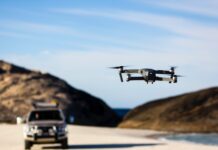AI is poised to revolutionize the fashion industry, ushering in a new era characterized by enhanced personalization, efficiency, and sustainability. One of the most significant changes is the personalized shopping experience that AI enables. By analyzing individual customer preferences, browsing histories, and purchase patterns, AI can provide tailored product recommendations. This not only creates a more engaging shopping experience but also fosters brand loyalty as customers feel understood and catered to in a way that was previously unattainable.
1. Personalized Shopping Experiences
AI is revolutionizing the fashion industry by offering personalized shopping experiences. By analyzing customer preferences, browsing history, and purchase patterns, AI can recommend tailored products, creating a more customized and engaging shopping experience. Personalized fashion recommendations, such as outfit suggestions or accessory pairings, make shopping more intuitive and enjoyable for consumers.
2. Virtual Fitting Rooms
With the rise of AI-powered virtual fitting rooms, consumers can now “try on” clothes digitally without being physically present in a store. Augmented reality (AR) combined with AI technology allows customers to see how clothes will fit and look on their body by simply uploading an image or using a webcam. This eliminates the guesswork from online shopping, reduces return rates, and enhances the overall shopping experience.
3. AI-Driven Fashion Design
AI is helping designers create new fashion trends by analyzing massive datasets of previous designs, consumer preferences, and emerging trends. By using AI algorithms, designers can generate unique clothing patterns and predict future fashion trends. This leads to more innovative and creative designs, as AI assists designers in discovering fresh patterns and styles that may not have been considered through traditional methods.
4. Efficient Supply Chain Management
AI is streamlining supply chain management in the fashion industry, optimizing inventory management, production processes, and logistics. By analyzing data in real-time, AI systems can predict demand, track inventory levels, and identify inefficiencies in the production process. This leads to reduced costs, faster production cycles, and less waste, ensuring that fashion companies can meet consumer demand more efficiently.
5. Sustainability and Ethical Fashion
AI is playing a crucial role in promoting sustainability and ethical practices in the fashion industry. By analyzing the environmental impact of different materials and production methods, AI can help fashion brands develop more eco-friendly alternatives. AI tools can also trace the origins of fabrics and raw materials, ensuring that the production process adheres to ethical labor practices and environmental standards, thus fostering transparency in the fashion supply chain.
6. Predictive Fashion Analytics
AI-driven predictive analytics is transforming how fashion brands forecast consumer behavior and trends. By analyzing vast datasets from social media, online searches, and consumer purchasing habits, AI can predict upcoming fashion trends with high accuracy. This helps brands stay ahead of the curve, ensuring that their collections reflect the latest consumer preferences and market demands.
7. AI in Fashion Marketing
AI is enhancing fashion marketing strategies by enabling hyper-targeted campaigns. By analyzing customer data, social media activity, and shopping behaviors, AI can help brands create personalized marketing messages that resonate with individual consumers. This targeted approach increases engagement, drives customer loyalty, and ensures that marketing efforts are more effective.
8. Reducing Overproduction and Waste
One of the biggest challenges in the fashion industry is overproduction, which leads to unsold inventory and waste. AI can predict the demand for certain products more accurately, helping brands avoid overproduction. By using AI algorithms to forecast trends and consumer behavior, fashion companies can produce clothing in quantities that meet actual demand, reducing excess inventory and minimizing waste.
9. Enhanced Customer Service
AI-powered chatbots and virtual fashion assistants are improving customer service in the fashion industry. These AI tools provide instant support to customers, answering queries about product availability, sizing, and shipping details. AI-powered assistants can also offer personalized styling advice, enhancing the overall shopping experience and helping customers find exactly what they need.
10. Smart Fabrics and Wearable Technology
AI is pushing the boundaries of fashion by incorporating smart fabrics and wearable technology into clothing. These innovations include garments with built-in sensors that monitor health, track fitness, or adjust to environmental conditions. AI-driven smart fabrics are poised to change how we think about fashion by merging style with functionality, offering consumers clothes that are both fashionable and technologically advanced.
Furthermore, the introduction of virtual fitting rooms is transforming how consumers shop for clothing. With AI-powered technology, customers can “try on” garments virtually by uploading images or using augmented reality through their devices. This innovation removes the guesswork from online shopping and significantly reduces return rates, making the process smoother and more enjoyable. As customers gain confidence in their purchasing decisions, brands benefit from lower return rates and higher customer satisfaction.
The fashion design process itself is also undergoing a significant shift due to AI. By leveraging vast datasets of past designs, consumer preferences, and emerging trends, AI assists designers in creating unique and innovative clothing patterns. This collaboration between human creativity and AI-driven insights allows for the rapid exploration of new styles, ensuring that designers can stay ahead of trends while minimizing the risk of stagnation in their creative processes.
In addition to design, AI is streamlining supply chain management, making it more efficient and responsive to consumer needs. By analyzing real-time data, AI can predict demand, track inventory levels, and identify inefficiencies in production processes. This capability not only reduces costs but also enables fashion brands to bring products to market faster, aligning production cycles with actual consumer demand. As a result, brands can adapt more quickly to changing market dynamics and consumer preferences.
Sustainability is another crucial area where AI is making a significant impact. The fashion industry faces increasing scrutiny over its environmental footprint, and AI is helping brands transition towards more sustainable and ethical practices. By evaluating the environmental impact of materials and production methods, AI can guide brands in selecting eco-friendly alternatives. Additionally, AI tools can trace the origins of fabrics and raw materials, ensuring that the entire supply chain adheres to ethical labor practices and environmental standards, thereby fostering transparency in the fashion industry.
AI-driven predictive fashion analytics is also changing the landscape of trend forecasting. By analyzing vast amounts of data from social media, online searches, and purchasing behavior, AI can predict upcoming fashion trends with remarkable accuracy. This capability empowers brands to stay ahead of the curve, ensuring their collections resonate with current consumer preferences and market demands. As a result, brands can make informed decisions about product launches and marketing strategies, aligning their offerings with what consumers desire most.
Moreover, AI is enhancing marketing strategies within the fashion industry by enabling hyper-targeted campaigns. By analyzing customer data and shopping behaviors, AI helps brands create personalized marketing messages that resonate with individual consumers. This targeted approach not only increases engagement but also drives customer loyalty, as consumers are more likely to respond positively to messages that feel relevant and tailored to their preferences.
One of the most pressing issues in the fashion industry is overproduction, which leads to unsold inventory and significant waste. AI can play a vital role in addressing this challenge by providing accurate predictions of demand. By utilizing AI algorithms to forecast trends and consumer behavior, fashion brands can avoid overproduction and produce clothing in quantities that meet actual market demand. This capability not only helps reduce excess inventory but also minimizes environmental impact, aligning with growing consumer expectations for sustainability.
In the realm of customer service, AI is enhancing the shopping experience through the use of chatbots and virtual fashion assistants. These AI-driven tools offer instant support to customers, answering queries about product availability, sizing, and shipping details. Additionally, they can provide personalized styling advice, guiding customers toward options that best suit their individual tastes and preferences. This level of assistance enhances customer satisfaction and encourages repeat business.
Lastly, AI is paving the way for the integration of smart fabrics and wearable technology into fashion. This innovation encompasses garments embedded with sensors that can monitor health, track fitness, or even adjust to environmental conditions. The blending of fashion and technology signifies a shift towards clothing that is not only stylish but also functional. As consumers increasingly seek clothing that enhances their lifestyle, smart fabrics and wearable technology will play a pivotal role in the future of fashion.
In conclusion, AI’s influence on the fashion industry is profound and multifaceted. By enhancing personalization, improving supply chain efficiency, promoting sustainability, and fostering innovation in design and technology, AI is reshaping every aspect of how fashion is conceived, produced, and consumed. As these technologies continue to evolve, they will empower brands to create a more consumer-centric, environmentally friendly, and cutting-edge fashion landscape. The future of fashion is bright, and AI will be at the forefront of this exciting transformation.

















